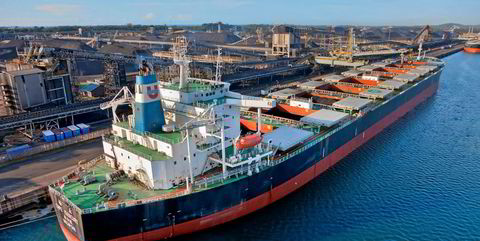The “time has come” for a new decarbonised fuel that satisfies the needs of the whole transportation sector, BRS Group chairman Francois Cadiou says.
Writing in BRS’ annual review released today, the Paris-based group — whose affiliates include BRS Shipbrokers and data provider AXSMarine — urges the International Maritime Organization to embark on a tremendous and worldwide initiative.
That initiative would develop a new zero-carbon fuel, which could be nuclear, ammonia, hydrogen or wind power.
And it would satisfy the whole of the transportation industry — not just shipping but planes, cars, trucks and trains, Cadiou writes.
“Shipowners may take individual initiatives, but they will not address the extent of the problem,” he said.
It would take time to renew the fleet as the number of dual-fuel or dual-fuel “ready” ships in service “hardly meet the new reality”, Cadiou said.
“Most of these shipowners do not have the economic power to address the challenge and nobody seems to have the right and final solution.”
“All of a sudden it resembles a trial-and-error mechanism that the world cannot afford anymore,” he said.
Chimeric solutions
Cadiou urges a serious look at “chimeric solutions”.
“Although full wind propulsion or nuclear or ammonia or hydrogen propulsion might look as distant or chimeric solutions, they need to be seriously investigated and engineered together with synthetic green fuels based on the CO2 and the H2O that need to be extracted from the atmosphere,” he said.
“Back in 2020, the scientific community rapidly produced a vaccine against an unknown disease, Covid. That was a colossal and planetary effort.
“Would that be so difficult to do the same thing for such a pressing matter?”
Cadiou noted that other simple solutions previously advocated by BRS such as slow-steaming and banning heavy fuel oil (HFO) had not gained much traction.
“Slow steaming should remain a huge part of the solution,” he wrote.
“However, this simple solution continues to find little backing from governments and international regulators,” he says.
Meanwhile, HFO continues to be used because of its low price.
“The use of this fuel continues to present an aberration,” Cadiou said.
“Again, this comes down to economics.”
“This race to the bottom needs to be stopped and the playing field levelled to enable cleaner molecules to compete with the economics of HFO,” he noted.






